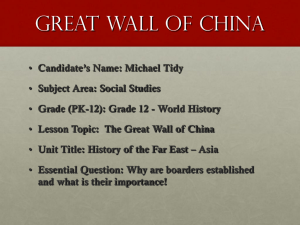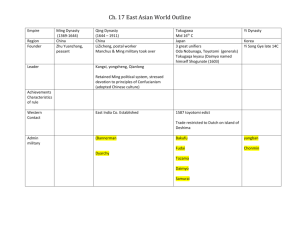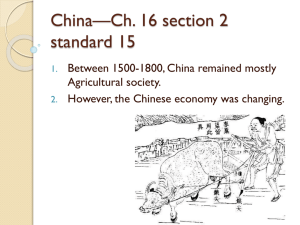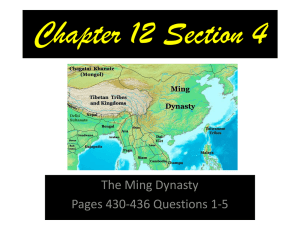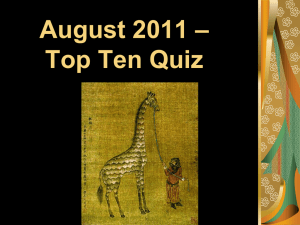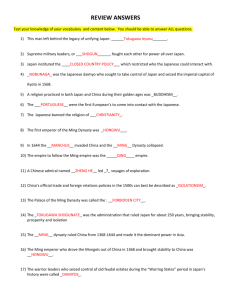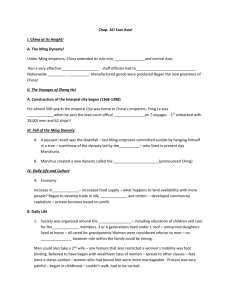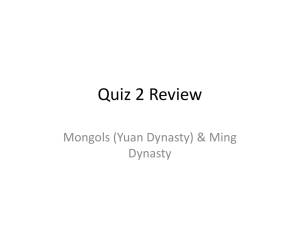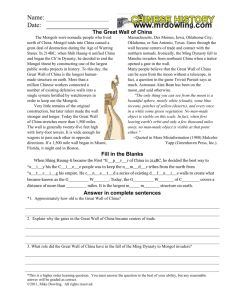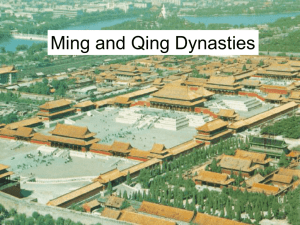Sites and Terms Covered in Lecture (word)
advertisement
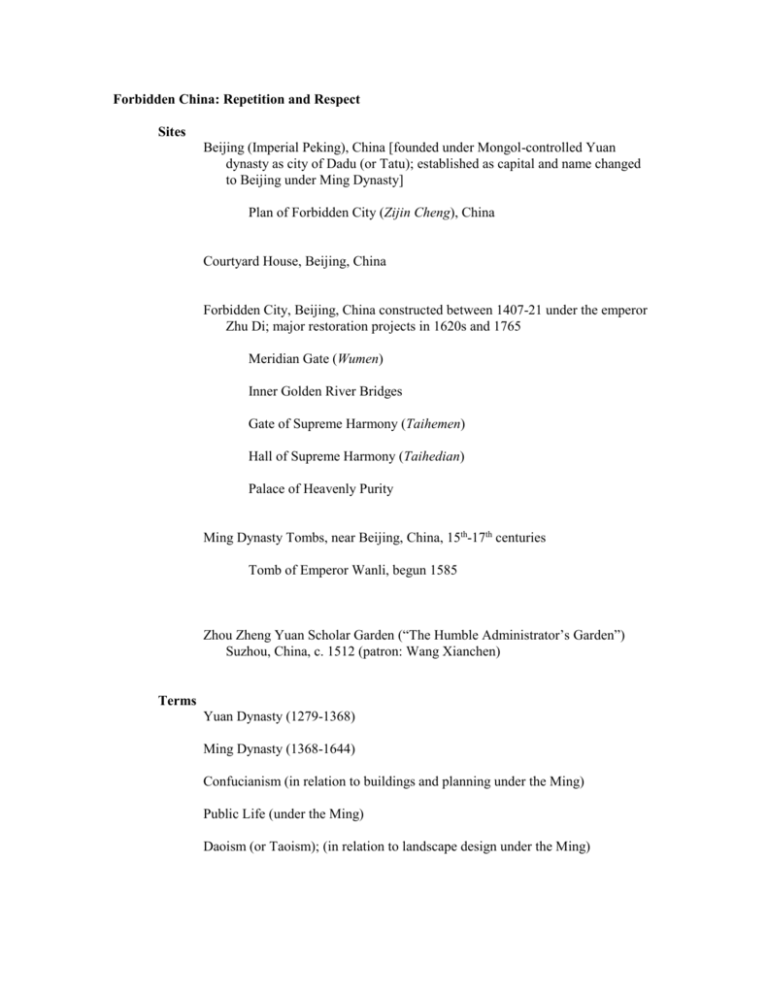
Forbidden China: Repetition and Respect Sites Beijing (Imperial Peking), China [founded under Mongol-controlled Yuan dynasty as city of Dadu (or Tatu); established as capital and name changed to Beijing under Ming Dynasty] Plan of Forbidden City (Zijin Cheng), China Courtyard House, Beijing, China Forbidden City, Beijing, China constructed between 1407-21 under the emperor Zhu Di; major restoration projects in 1620s and 1765 Meridian Gate (Wumen) Inner Golden River Bridges Gate of Supreme Harmony (Taihemen) Hall of Supreme Harmony (Taihedian) Palace of Heavenly Purity Ming Dynasty Tombs, near Beijing, China, 15th-17th centuries Tomb of Emperor Wanli, begun 1585 Zhou Zheng Yuan Scholar Garden (“The Humble Administrator’s Garden”) Suzhou, China, c. 1512 (patron: Wang Xianchen) Terms Yuan Dynasty (1279-1368) Ming Dynasty (1368-1644) Confucianism (in relation to buildings and planning under the Ming) Public Life (under the Ming) Daoism (or Taoism); (in relation to landscape design under the Ming)
